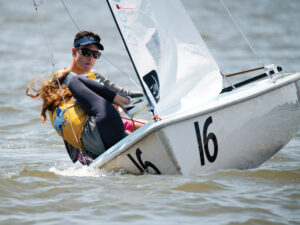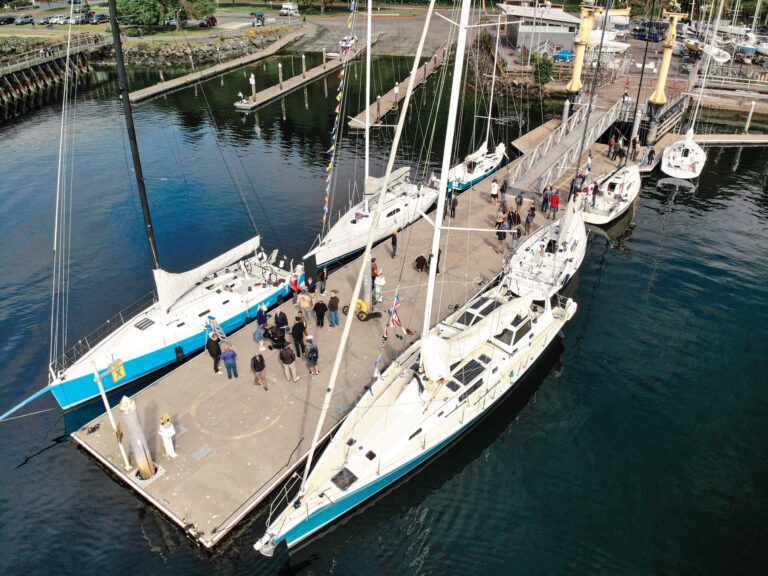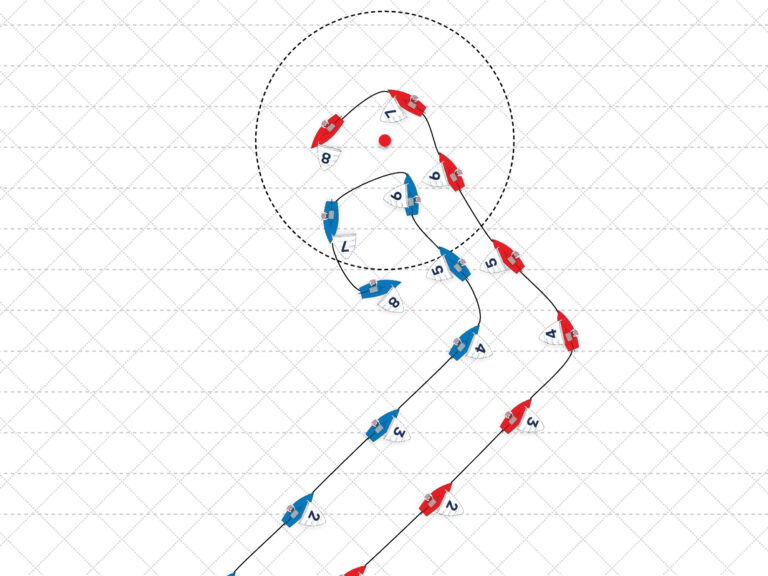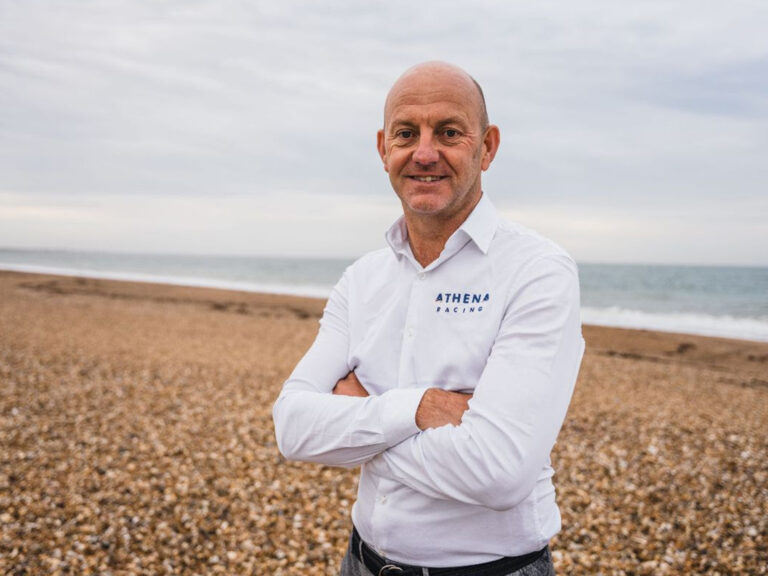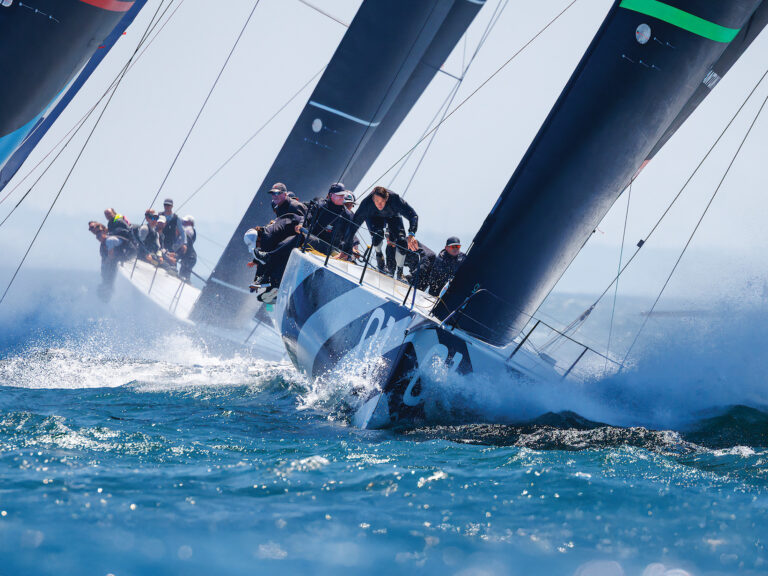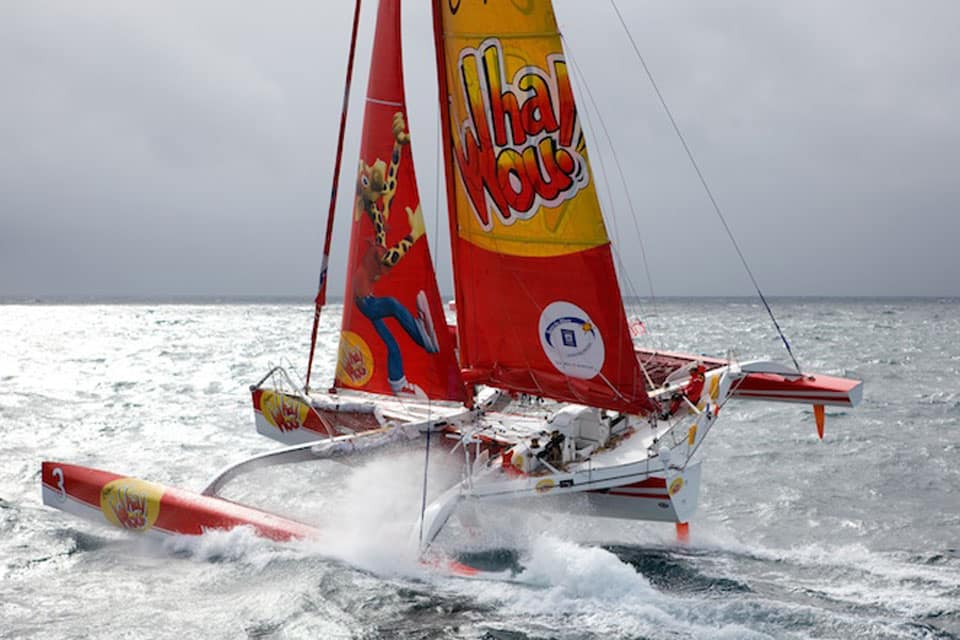
Escof960
This year’s Transat Jacques Vabre was often more about survival than it was about racing. Fortunately, there were no tragedies. But the crews and boats certainly took a beating, especially in the Multi 50 class. Only two of the six Multi 50 entries that set out from Le Havre, France, made it to the finishing poles off Puerto Limon, Costa Rica.
Not surprisingly, the Vendée Globe IMOCA class boats fared better, with only four of 13 retiring. Jean-Pierre Dick won the IMOCA class on Virbac Paprec 3 with Jérémie Beyou. For Dick, the Jacques Vabre served as a warm-up race prior to the start of next year’s Vendée Globe. Akena Verandas, which Arnaud Boissières and Gérald Véniard skippered, suffered a freak dismasting near the start, and other boats in the class retired due to breakages not necessarily related to sea conditions.
At press time, several Class 40 competitors were still out at sea; Yannick Bestaven and Eric Drouglazet on Aquarelle.com took first place last week.
While the weather took the most toll on the Multi 50 boats, conditions were bad for all of the competitors. After high winds and seas in the English Channel prompted the organizers to delay the start, a series of nasty storm fronts slammed the fleet a few days later near the Azores. Skippers in all three classes had to battle confused, 20-foot seas and wind gusts of 50 knots. Later, there were lare waves cresting in different directions in low wind conditions. At other times, the winds would quickly change course by 180 degrees in just a few hours. “There were several weather fronts that were, to say the least, difficult, very violent, and brutal,” says Yves Le Blevec, who won the Multi 50 class with Samuel Manuard.
Despite his victory, Le Blevec has his doubts about the Multi 50’s practicality as a transat class. He and Manuard were able to steer clear of the worst of the weather fronts this year; they “only” faced winds of 40 knots. “For the Multi 50 class, the boats sail well but are still small, and they push the limits in conditions like this,” says Le Blevec, who was forced to abandon the race in 2009. “We were happy to have gone through without anything breaking on the boat. Multi 50 boats are designed for racing, but they are also fragile.”
Among sailors I spoke with in St. Malo, France, the consensus seems to be that Multi 50s are too dangerous for non-professionals to be racing across the Atlantic in the late fall. But not everybody feels that way. I caught up with Franck Yves Escoffier, who was forced to retire from this year’s race. He broke his tailbone when his Multi 50 Crêpes Whaou slammed into a wave. You’d think Escoffier might have soured on the Multi 50 class, or even transats in general, but when I met him at his house in St. Malo, he was as enthusiastic as ever about the viability of Multi 50s. Of course, he wasn’t about to run a marathon—and he sometimes winced with pain when walking—but his support for the Multi 50 class, for which he heads the international committee, had hardly waned. “The risk of sailing Class 50 multihulls is a little higher compared to that of monohull boats,” he said. “You have to be more careful. It is more stressful, and you sleep less. But when you sail at speeds of 30 knots with a Multi 50 boat, it is very difficult to go back to a monohull design with which you only reach speeds of 15 knots when running with the wind.”
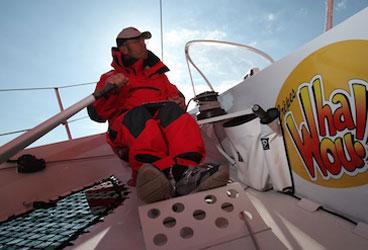
Antoine Koch
_Despite breaking his tailbone in this year’s Transat Jacques Vabre, Franck Yves Escoffier is still enthusiastic about racing Multi 50s offshore.
_
According to Jacques Vabre race director Jean Maurel, who determines who qualifies to sail in the Jacques Vabre as well as the Route Du Rhum, the Class 50 and multihulls in general will continue to be a staple of future transats. During the 1999 Jacques Vabre, Maurel lost his crewmate, Paul Vatine, when their multihull Groupe André capsized. That year, as in this year’s race, only two multihulls completed the course. Maurel has faced the worst, and he will do his best to make the transats for which he is responsible as safe as they can be, but he knows that transats are not family cruises, either. “You can create classes for speeds, and you can design boats for total safety, but you can’t have both,” Maurel said. “It’s a dangerous sport. Just look at the Formula 1 races—those guys are driving 180 mph and everybody accepts that.”



